Introduction
In the canine world, a cough can be more than just a little annoyance—it can signal a serious respiratory illness. As dog owners, it’s our responsibility to stay informed about our furry friends’ health, especially amidst recent outbreaks of respiratory diseases among dogs. This article examines the critical issue of dog respiratory illness, exploring its causes, symptoms, preventive measures, and treatment options. Whether you’re a seasoned dog owner or a new puppy parent, understanding this aspect of canine health can help you keep your pet safe and sound. Let’s sniff out the details!
Speaking of keeping your pup healthy, have you checked out the Dog Vaccination Book? It’s a must-have for every dog owner wanting to stay on top of their pup’s health schedule!
Summary Section
Recent reports have highlighted an increase in canine respiratory illnesses, causing concern among dog owners. This article breaks down the essential information about these respiratory diseases, focusing on their origins, symptoms, and the potential risk factors involved. Key points include:
- Types of Respiratory Diseases: Canine Infectious Respiratory Disease Complex (CIRDC), commonly known as kennel cough, is the most recognized form of respiratory illness in dogs. However, a new wave of atypical respiratory illness has emerged, with symptoms that can lead to serious complications.
- Common Symptoms: Coughing, sneezing, nasal discharge, lethargy, and decreased appetite are prevalent among affected dogs. In severe cases, this can escalate to pneumonia or even hospitalization.
- Transmission: Typically, these diseases spread through direct contact, respiratory droplets, or contaminated surfaces. Dogs in social settings—like daycares or parks—are at higher risk.
- Prevention Strategies: Keeping your dog up-to-date on vaccinations, avoiding crowded places, and maintaining hygiene are crucial steps for protection.
- Immediate Actions: If a dog shows symptoms, prompt consultation with a veterinarian is vital for effective diagnosis and treatment.
Curious about how to keep your dog healthy amid these challenges? Read on to uncover the best practices for prevention and care!
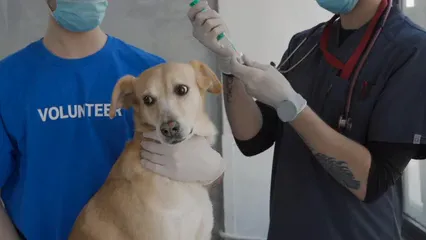
Understanding Canine Respiratory Illnesses
Overview of Canine Respiratory Diseases
Canine respiratory illnesses can be quite a headache, or should we say, a cough? One of the main culprits is the Canine Infectious Respiratory Disease Complex (CIRDC), commonly known as kennel cough. This condition is a mix of various viral and bacterial infections that can put your furry friend’s breathing to the test. Unfortunately, it doesn’t stop there. A rise in atypical respiratory diseases is causing quite a stir among veterinarians. These illnesses tend to exhibit symptoms that are not typical of standard respiratory infections, potentially leading to more severe complications.
Awareness is key for dog owners. Understanding the landscape of canine respiratory diseases can help you catch symptoms early. Being informed means being proactive. After all, who wants to watch their pooch struggle to breathe when a simple check-up could have made all the difference?
To aid in your proactive approach, consider having a Pet First Aid Kit handy. It’s perfect for those unexpected moments when your furry friend needs a little extra care!
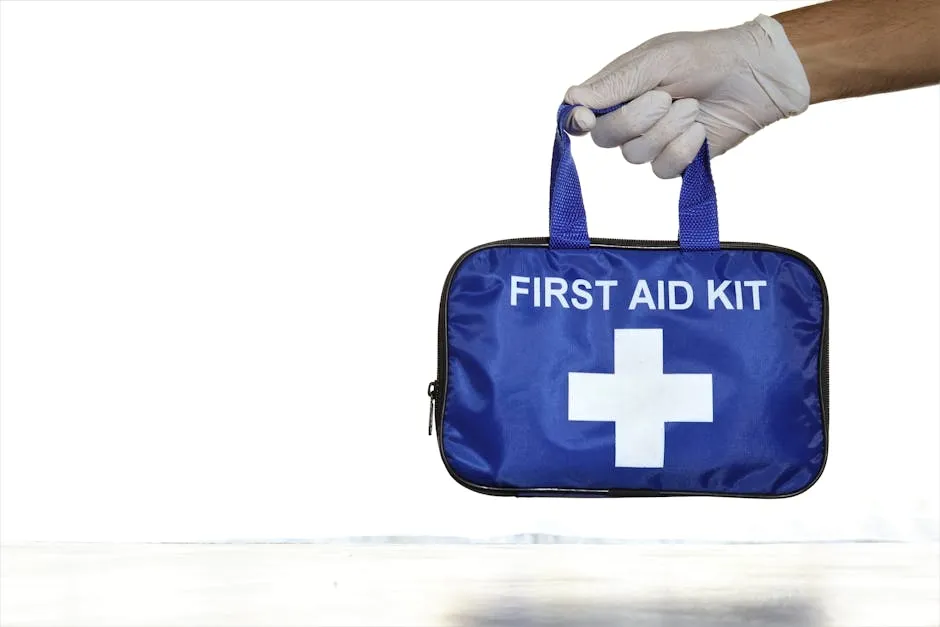
Symptoms of Respiratory Illness
Keep an eye out for these common signs that might indicate your dog is having respiratory issues:
- Coughing: This can range from a dry, hacking cough to a deep, moist one, indicating different levels of severity.
- Sneezing: Frequent sneezing can signal irritation or infection in the nasal passages.
- Nasal and Eye Discharge: If you see gunk coming from your dog’s nose or eyes, it might be time to see a vet.
- Lethargy and Decreased Appetite: If your usually rambunctious pup turns into a couch potato and shuns food, something may be up.
These symptoms can escalate quickly, leading to more serious conditions like pneumonia. So, don’t brush them off as mere allergies!

Common Causes
Canine respiratory diseases can be attributed to various pathogens that can knock the wind out of your dog’s sails. Here’s what you need to know about the major offenders:
- Viral Infections: Canine Influenza and Canine Parainfluenza are top contenders. These viruses are highly contagious and can spread quickly, especially in communal areas like parks and kennels.
- Bacterial Infections: Bordetella bronchiseptica is the notorious villain behind kennel cough. This bacterium can wreak havoc on your dog’s respiratory system, especially if not properly managed.
- Environmental Factors: Allergies to pollen, dust, or even pollution can trigger respiratory symptoms. Dogs living in urban areas may be more prone to these irritants.
Understanding these causes can empower you to take preventative measures and keep your pup happy and healthy!
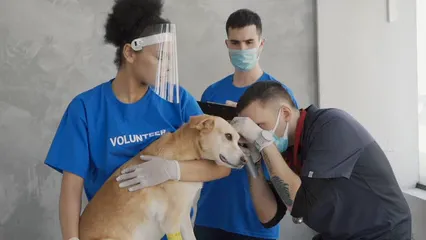
Recent Outbreaks and Concerns
Overview of Recent Outbreaks
Reports of canine respiratory illness outbreaks have been making headlines across the U.S., causing quite a stir among dog owners. Notably, areas like Oregon and New Hampshire have seen a spike in cases since late summer 2023, drawing the attention of veterinarians and pet parents alike. The Oregon Department of Agriculture noted over 200 reported cases since August 2023, while Colorado saw a staggering increase in canine pneumonia cases.
Affected demographics include various breeds, especially those known for respiratory challenges, such as bulldogs and pugs. These breeds often struggle more than others when it comes to respiratory health, so vigilance is crucial.
As concerns rise, dog owners should remain informed about the geographical spread of these outbreaks and understand the symptoms that warrant attention. Keeping track of local news and veterinary updates can help you stay ahead of potential health risks for your pet.
In summary, being aware of recent outbreaks and understanding the signs and symptoms of respiratory illnesses in dogs is essential for proactive care. Your furry friend’s health might just depend on it!

Public Concerns and Responses
Dog owners have been on high alert due to recent respiratory illness outbreaks. The anxiety among pet parents is palpable. Imagine your furry friend sneezing or coughing—instant panic mode, right? The concerns are valid, as many dogs have exhibited severe symptoms. Public forums are buzzing with discussions, questions, and alarmed dog owners seeking guidance.
In response, veterinarians are stepping up. They are conducting research and diagnostics to tackle these outbreaks head-on. Institutions like Cornell University are investigating these mysterious cases, seeking to identify the causative agents and improve treatment protocols. Local vets are also advising pet owners to consult them promptly if symptoms arise. After all, early detection is key to ensuring our canine companions are safe and healthy.
Expert Opinions
Veterinary professionals are weighing in on the nature of these respiratory illnesses. They emphasize that while many dogs are recovering, some cases are unusually severe. Dr. Scott Weese and others indicate that a mix of known pathogens is likely at play. This includes the notorious Bordetella bronchiseptica, which is known for causing kennel cough.
But the mystery doesn’t end there. Experts stress the need for ongoing research and surveillance. Understanding these diseases is vital for developing effective treatments and preventive measures. Experts believe that keeping vaccinations current and monitoring dog interactions can significantly reduce the risk of infection. In short, vigilance is key in this ongoing battle against canine respiratory illness.

Prevention and Care
Vaccination Importance
Vaccines are your dog’s best friends when it comes to preventing respiratory illness. Key vaccines include:
- Bordetella: This vaccine protects against kennel cough, a common respiratory ailment.
- Canine Influenza: Vaccination is crucial, especially during outbreaks.
- Parainfluenza: This helps guard against another viral culprit in respiratory infections.
Staying on top of these vaccinations is vital. Consult your veterinarian to ensure your pup is up-to-date and protected against these sneaky pathogens.
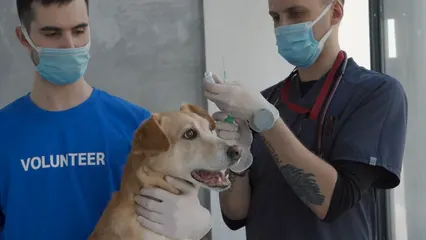
And speaking of staying protected, a Dog Care Guide can be a great resource for new and seasoned dog owners alike. It’s packed with tips to keep your pup happy and healthy!
Hygiene Practices
Hygiene can be a game changer in preventing sickness. Here’s how to keep illness at bay:
- Avoid Communal Bowls and Toys: Sharing is not caring when it comes to germs. Keep a close eye on what your dog interacts with.
- Clean Shared Items: Regularly wash toys, beds, and bowls. A little soap goes a long way in keeping those nasty germs away!
- Monitor Social Interactions: Be cautious about who your dog hangs out with. Limit playdates with unknown dogs to reduce exposure risks.
Implementing these hygiene practices can help create a healthier environment for your furry friend.
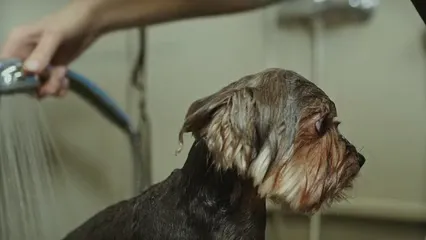
When to See a Veterinarian
Knowing when to seek veterinary help is crucial. Here are signs that warrant a trip to the vet:
- Persistent or Severe Symptoms: If your dog’s cough won’t quit or worsens, it’s time to act.
- Signs of Dehydration or Distress: If your pup is lethargic, refuses to eat, or shows labored breathing, don’t hesitate. Quick action can prevent complications.
Recognizing these signs early can make all the difference in your dog’s recovery. Keep a watchful eye and consult your veterinarian whenever you have concerns. After all, your dog’s health is worth it!
By following these preventive measures and being proactive, you can help ensure your dog stays healthy and happy, even amidst the respiratory illness challenges.
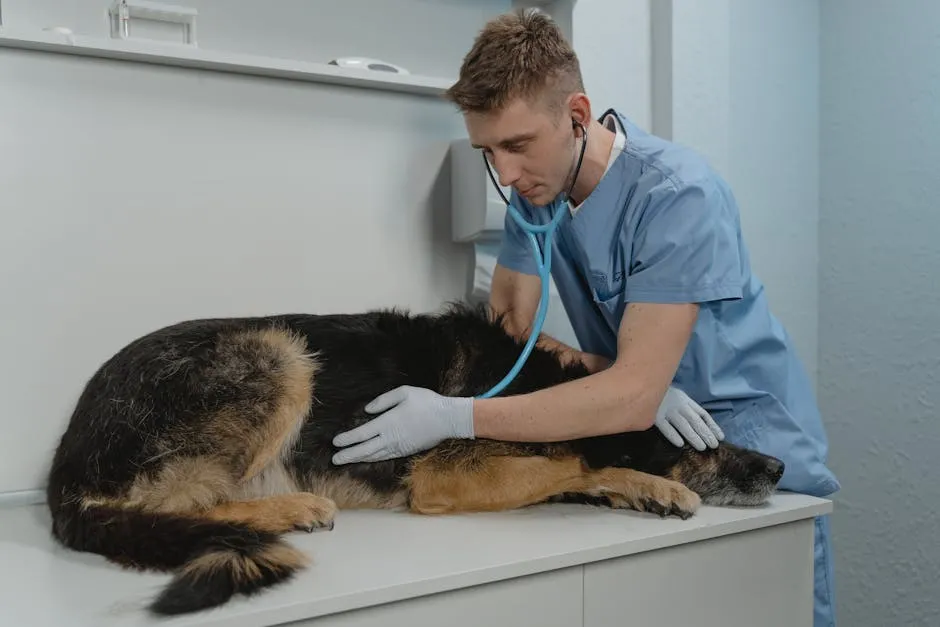
Treatment Options
Immediate Care
If your dog shows signs of respiratory illness, acting swiftly is key. Start by assessing the situation. Check for coughing, sneezing, or unusual lethargy.
First, keep your dog calm. Stress can worsen symptoms. Create a cozy, quiet space away from other pets. Ensure your furry friend stays hydrated. Fresh water should always be available to help thin mucus and ease breathing.
Monitor your dog’s food intake. If they seem disinterested in meals, try offering bland, easily digestible options. Chicken and rice can work wonders. Consider using a Humidifier for Pets to keep the air moist, which helps soothe irritated airways.
Rest is essential. Encourage your dog to relax and not engage in strenuous activities. Limit walks to short, gentle outings. If your dog’s condition worsens or doesn’t improve within a few days, it’s time to consult a veterinarian.
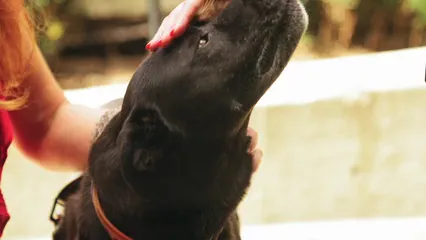
Veterinary Treatments
When home care isn’t enough, veterinary intervention may be necessary. Your vet will likely start with a thorough examination to assess the severity of your dog’s condition. They may recommend tests to identify the specific cause of the respiratory distress.
Antibiotics may be prescribed if a secondary bacterial infection is suspected. Common culprits include Bordetella bronchiseptica, known for causing kennel cough. If your dog is diagnosed with pneumonia, aggressive treatment will be necessary, potentially including intravenous antibiotics and fluids.
Supportive care is vital. Your vet may suggest administering fluids to prevent dehydration, especially if your dog is refusing to drink. Rest and quiet time are crucial for recovery.
In severe cases, hospitalization may be required. This can involve oxygen therapy to ensure your dog receives adequate oxygen levels. Monitoring in a clinical setting allows for immediate treatment adjustments, ensuring your furry friend gets back to their joyful self as soon as possible.
If your dog struggles with chronic conditions, ongoing management may include regular check-ups and preventive treatments to keep respiratory issues at bay. Always follow your veterinarian’s advice for the best outcome.
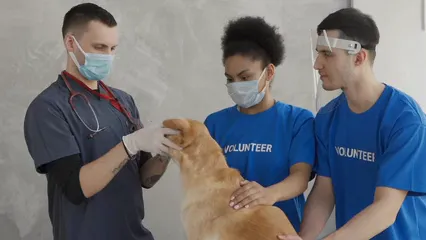
FAQs
What should I do if my dog shows signs of respiratory illness?
If your dog starts coughing or sneezing, don’t panic. Instead, consult your veterinarian promptly. Describe the symptoms and discuss any potential testing. Early intervention can make a big difference in treatment outcomes. A little vet visit can save a lot of worry later.
Can respiratory disease in dogs spread to humans?
Good news for dog lovers: there’s currently no evidence that these respiratory illnesses can be transmitted to humans. So, cuddle away! However, it’s always wise to wash your hands after playtime with your pup—better safe than sorry!
How can I prevent my dog from getting sick?
Preventive measures are your best defense! Keep vaccinations up to date, especially for kennel cough and canine influenza. Limit exposure to crowded places like dog parks or daycares, and maintain good hygiene practices. Avoid sharing bowls or toys with unknown dogs. Your furry friend will thank you!
Is there a cure for canine respiratory diseases?
While many dogs recover with supportive care, severe cases may require medical treatment from a veterinarian. This might include antibiotics for secondary infections or other medications. Always follow your vet’s advice to ensure the best care for your pup. Keeping a close eye on your dog’s symptoms can aid in a quicker recovery!
And don’t forget about those pesky cleaning needs! Having the right Pet Cleaning Supplies can make all the difference in keeping your home fresh and tidy while managing pet messes.
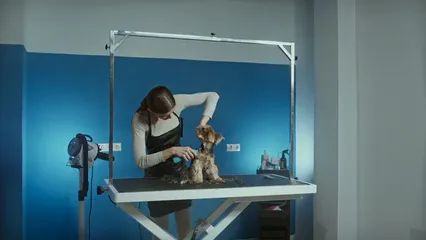
Please let us know what you think about our content by leaving a comment down below!
Thank you for reading till here 🙂
All images from Pexels





